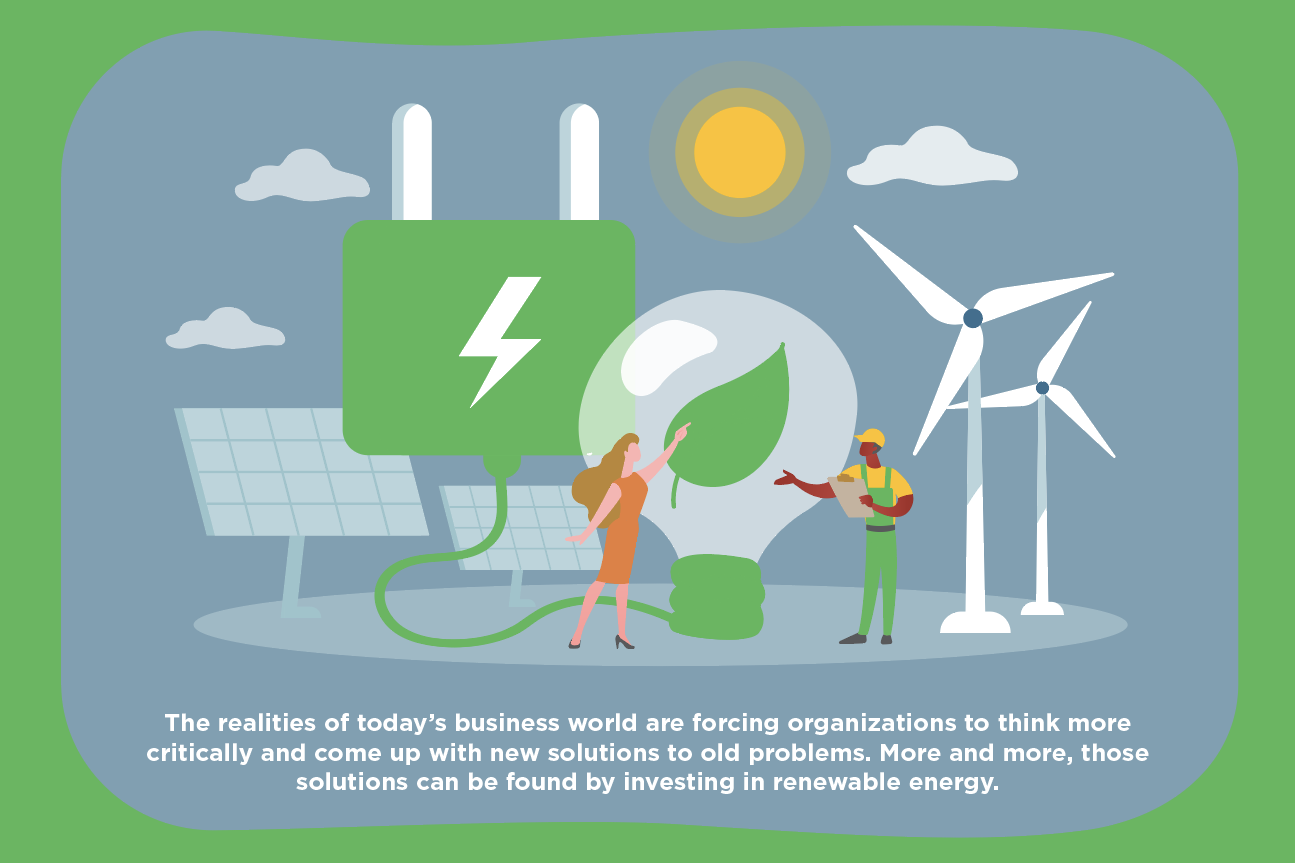In just about every industry, business owners and their consumers are experiencing supply chain frustrations. From inflationary pressures and personnel shortages to weeks-long backlogs at shipping ports, bottlenecks are having a domino-like effect on costs, work productivity, inventory, and the world economy as a whole. These realities are forcing organizations to think more critically and come up with new solutions to break these cycles. They may find the solution by investing in renewable energy, as nations, citizens and businesses are increasingly turning toward renewables as a better alternative to traditional energy sources. As a professional that depends on a healthy supply chain, here are a few of the ways that leveraging solar, wind, geothermal, and other naturally replenishing energy sources can strengthen your business.
Improves worker productivity
A major contributor to the ongoing supply chain snags is related to output. Due, in part, to the pandemic, which forced many organizations to operate with skeleton crews in light of social distancing recommendations, a number of workers have decided to move on and pursue alternative career paths. It’s a movement that has been dubbed “The Great Resignation.” As a result, there are now more job openings than people looking for work, as Reuters reported recently from government data.
Business owners that demonstrate their focus on sustainability, as it pertains to energy consumption and the sources they use, may be able to increase their hiring options by drawing more job seekers. Polls show that the environment is a top concern for many Americans. In a recent Gallup poll, nearly 75% of respondents said the U.S. should invest more in solar power, and 66% said the same for wind. Only 23% wanted more reliance on coal. Increasing the use of renewable energy can help supply chains by not only attracting more talent but retaining it as well. The key is to ensure employees are made aware of what types of energy are being utilized during the course of production.
Increases profitability potential
Supply chains can’t truly thrive if they’re lacking in demand. Just as people are attracted to environmentally responsible employers, they’re also more inclined to buy from them as well. As the study tech firm GreenPrint showed, close to 66% of Americans surveyed said they’re willing to pay more for products knowing that they were produced in a sustainable way. Additionally, 78% indicated they’re more inclined to buy products that they know are environmentally friendly or labeled as such.
Enhances competition with other green-friendly businesses
Seeking opportunities to utilize renewables in supply chain management also helps to even the playing field with household-name organizations. Following the lead of the 195 countries that participated in the United Nations Conference on Climate Change, over 150 companies are pledging to pursue 100% renewable energy in their production processes moving forward. Apple, Kohl’s, Dell, Facebook, Google, Goldman Sachs, General Motors, and General Mills are among the signatories of the American Business Act on Climate Change. In addition to reducing their emissions, these organizations pledge to pursue zero net deforestation in their supply chains. Making similar commitments to sustainability stimulates competition through strategic partnerships and goals.

However, it isn’t enough to just say you’re committed to utilizing renewable energy as a means toward supply chain optimization; you have to put it into practice. Gartner recommends taking the following considerations into account to guide your strategy and approach:
- Adaptation: Adaptation is about creating resilience and managing risks. Adaptation includes reviewing capital investments, suppliers, categories, and raw materials against climate change risks and goals.
- Mitigation: Mitigation focuses on short-term solutions to long-term goals. These can extend to all parts of the supply chain including procurement (requiring sustainable suppliers) and logistics (reducing transportation emissions in last-mile delivery).
From manufacturing, tech, life sciences, and more, business owners from numerous industries have turned to Inspirage for supply chain optimization and modernization. Yours could be next. Contact us today.